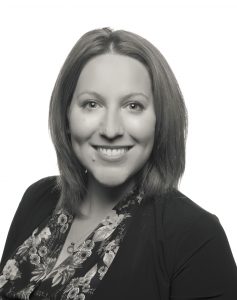Spring is FINALLY here! The time has come to plant seeds, clean out the garage, and to plan for graduation! As a member of the fifth cohort in the Nonprofit MBA program, I will be finished with classes in just a few short months. One part of me can’t wait for this milestone, while the other part of me is asking, “Does it have to end?”

This term, one of our cohort’s classes is Economics and Metrics for Sustainability with Professor Dean Hess. This class has been incredibly insightful and reflective, prompting me to question several things about the nonprofit industry, and my role in protecting our natural resources.
One of my deepest held values is to be respectful of the environment. In our house, this means reducing waste, shopping local, driving less, and overall trying to reduce our ecological footprint. All of these things are focused on being “less bad.” Which is good. But one of my favorite key takeaways from this term is that in addition to being “less bad,” we also need to focus on doing “more good,” as in, adding to the Earth’s well-being rather than just taking less. This concept came from one of our assigned class readings, The Upcycle. But how do we do this?
On a personal level, we can purchase products that have been Cradle to Cradle certified, meaning they give something back to the earth at the end of their lifecycle. We can also do things like gardening at home. Having a vegetable garden puts less strain on food systems to deliver produce to your area, and it cleans the air around your home. Double whammy!
On a professional level, we can be advocates for sustainable practices at our places of work. Many of the cases we’ve studied indicate that change often comes from one, or a few, individuals who influence the organization to take action. The best part is, this often means higher financial returns! The Economics and Metrics for Sustainability class walks you through how to make the argument for your business to “go green” with a focus on the triple bottom line. If you want to go to bat for the environment at some point in your career, I highly suggest taking this class.
As the spring term comes to a close, I continue to reflect on how I can personally influence change in my home, in my organization, and in my community. I have a few ideas, but always love hearing what other people are doing to practice environmental stewardship, either in their work or personal lives. Share your thoughts in the comments section!
~Jenna Kisor is the Development and Events Coordinator for Park Academy

